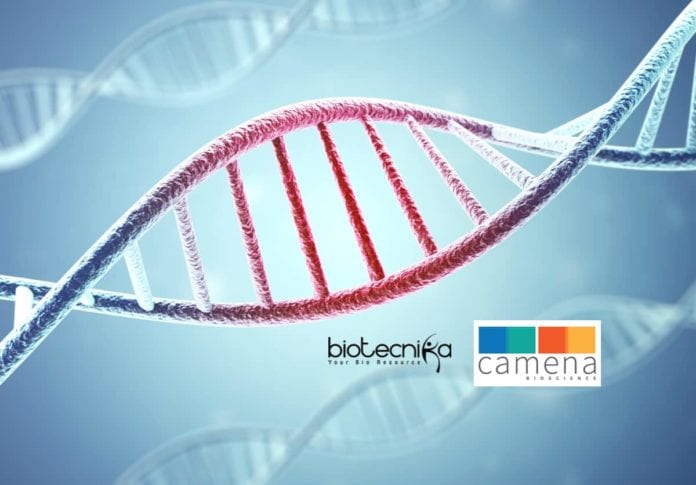Camena Bioscience Develops gSynth
Synthetic biology company, Camena Bioscience, has introduced a substantial innovation in DNA synthesis precision with the invention of a cutting-edge technology called gSynth.
With this enzymatic de novo synthesis and gene assembly technique, gSynth has the ability to generate 300 nucleotide DNA particles with an accuracy as high as 90%. This is a huge improvement in precision that will be fundamental for the advancement of artificial biology applications. The gSynth technology will have a wide variety of applications right from the pharmaceutical industry to agriculture.
Camena Bioscience Develops gSynth- How is gSynth useful?
The capacity to generate artificial DNA is important for the examination and design of brand-new organic pathways. Phosphoramidite synthesis has been the gold-standard DNA synthesis approach for many years, yet over lengthy stretches of DNA, this method is error-prone. For DNA series 200 nucleotides long, with the best nucleotide coupling effectiveness, only 30-40% of the material is the appropriate full-length series. Additionally, some series, such as stretches of one base (homopolymers), are particularly challenging to produce. These limitations are holding back the manufacturing of lots of DNA sequences and also consequently brand-new synthetic biology applications.
Lately, there has been a drive to create
novel enzymatic DNA synthesis innovations but, until now, such methods have proved to be inaccurate and unreliable.Camena Bioscience Develops gSynth- The Advantages of gSynth
For synthetic biologists, DNA synthesis accuracy is critical as any kind of error will affect downstream results. gSynth is an innovative enzymatic as well as modular setting up a technique that makes it possible for long as well as intricate DNA molecules to be accurately produced.
When the gSynth technology by Camena Bioscience was compared with phosphoramidite synthesis, gSynth has was found to be more accurate and precise. The following results were found:
- A comparison of around 300 nucleotide fragments found that phosphoramidite had an accuracy of around 27%. However, gSynth showed an average accuracy of around 85.3%.
- gSynth showed accuracy in synthesizing homopolymers, which are very difficult to produce with conventional phosphoramidite synthesis. In this case, around 12.5% of phosphoramidite produced material was correct, compared to 89.2% with gSynth technology.
Steve Harvey CEO of Camena Bioscience said that conventional DNA synthesis has failed to meet the benchmark accuracy. He further added that he is excited about the new development and would further work towards improving technology.






























